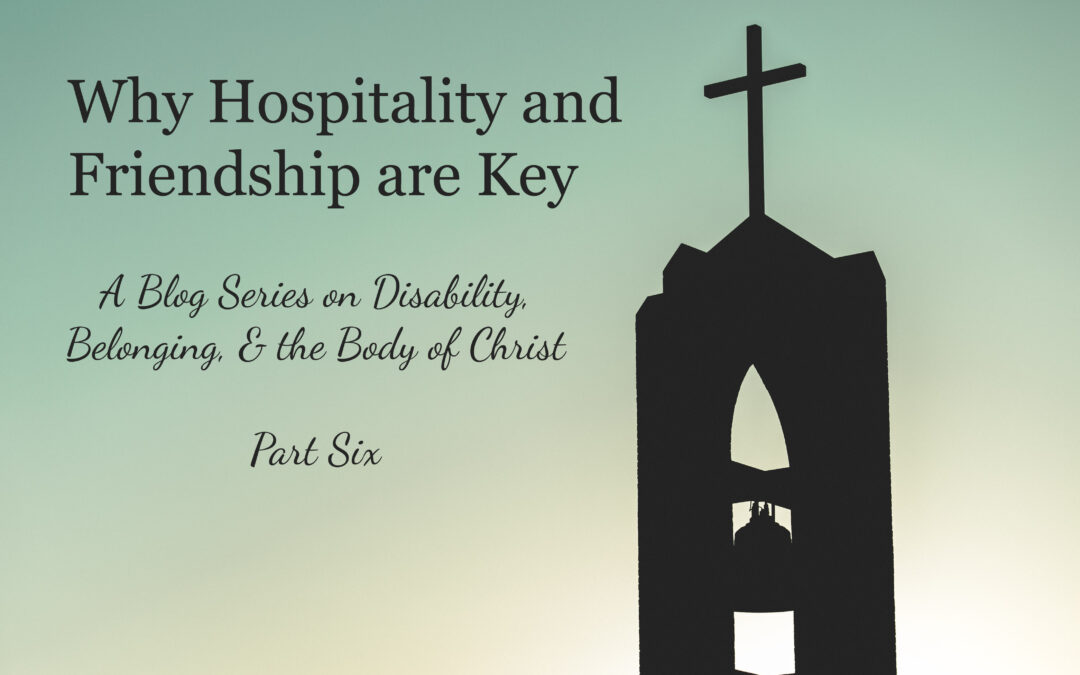“Hospitality involves actively welcoming and befriending the stranger — in this case, a person with disabilities — not as a spectacle, but as someone with inherent value, loved into being by God, created in the image of God, and thus having unique gifts to offer as a human being.”[1]
Thomas Reynolds
Once we understand limits are part of humanity, we gain a better frame for disability. Some people with disabilities look different because they wear their limits for all the world to see. Others, like the line in the poem, have their limits “quietly hidden.” You might not even know a neighbor or friend has a disabling condition. But differences and disabilities shouldn’t get in the way of seeing or knowing the person.
Every person wants to be welcomed into friendship, and “friendship is the Christian practice that addresses the fundamental need we have to be connected.”[2] Hospitality, the act of welcome, is the starting point, and the place should be the Church.
Hospitality is an active way of bringing the stranger into a relationship that “embodies divine love.”[3] While hospitality reflects God’s love to a person, it also affirms their worth. Actively extending love to the stranger-now-friend is like saying the words, “You matter to God. You matter to me.”
When we grasp that we matter through the experience of being included, our hearts settle down and stop searching. Being included leads to belonging.
Belonging is about feeling welcomed and wanted, known and needed, connected and accepted. You are present in my life, and I’m present in yours. There is a mutual giving and receiving, which reflects the love of Jesus to each other. 1 John 4:7 says, “God is love.” Ephesians 5:1-2 tells us to “…be imitators of God, as beloved children, and live in love…” There are other verses that remind us to embody Jesus’ love and let our actions show love. Pause to read a few: Hebrews 10:24, 1 John 3:18, 1 Peter 4:8, and John 15:12.
For our churches to create spaces of belonging to every member, it is important to remember – the Body of Christ binds us all together as one, and each member is essential. “For as in one body we have many members, and not all members have the same function, so we, who are many, are one body in Christ, and individually we are members of one another.” (Romans 12:4-5). We belong to God and each other.
When you belong, your identity as “the stranger” comes to an end.
You are called “friend.”
When you belong, you are not defined by disability or ability.
You have a name.
When you belong, you can be yourself within the Body of Christ.
You are loved as you are.
Now go, and show love.
[1]Thomas E. Reynolds, Vulnerable Communion: A Theology of Disability and Hospitality (Grand Rapids: Brazos Press, 2008), 14.
[2]Benjamin T. Conner, Amplifying Our Witness: Giving Voice to Adolescents with Developmental Disabilities (Grand Rapids: William B. Eerdmans Publishing Company, 2012), 39.
[3]Reynolds, Vulnerable Communion, 241.

